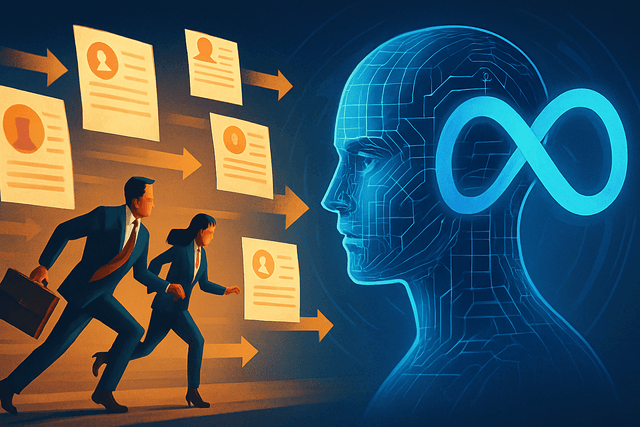Mark Zuckerberg is sparing no expense in his quest to make Meta the first company to achieve artificial superintelligence. The social media giant has launched an unprecedented talent acquisition campaign, offering compensation packages worth up to $300 million over four years to lure top AI researchers from rival companies.
At the center of this effort is Meta's newly established Superintelligence Labs, created in June 2025 and led by Alexandr Wang, the 28-year-old former CEO of Scale AI, alongside Nat Friedman, former GitHub CEO. Meta invested $14.3 billion for a 49% stake in Scale AI as part of the deal to bring Wang aboard, valuing the data-labeling startup at $29 billion.
"For our superintelligence effort, I'm focused on building the most elite and talent-dense team in the industry," Zuckerberg stated in a recent company memo. The restructuring consolidates all of Meta's AI initiatives—including foundation models, product teams, and research—under the new division, which reports directly to Zuckerberg.
The aggressive recruitment drive has successfully poached researchers from leading AI companies. Reports indicate Meta has hired at least 11 top researchers from OpenAI, Google DeepMind, and Anthropic, including specialists in reasoning models, multimodal AI, and vision systems. Some offers allegedly include $100 million in first-year compensation alone.
This talent war has sparked fierce reactions from competitors. OpenAI CEO Sam Altman described Meta's approach as "distasteful" and claimed that "missionaries will beat mercenaries." According to internal communications, OpenAI's leadership team has been working "around the clock" to retain talent, with chief research officer Mark Chen telling staff it felt like "someone has broken into our home and stolen something."
Meta's massive investment comes after setbacks with its Llama 4 AI model released in April 2025, which received lukewarm reception and raised concerns about Meta falling behind competitors. The company plans to spend up to $65 billion on AI infrastructure in 2025 alone, building massive data centers to train increasingly powerful models.
With its substantial business generating over $40 billion quarterly, Meta can afford this high-stakes gamble on superintelligence—AI systems that surpass human capabilities across all knowledge domains. However, questions remain about whether simply assembling expensive talent will translate into the breakthrough innovations needed to win the AI race.

